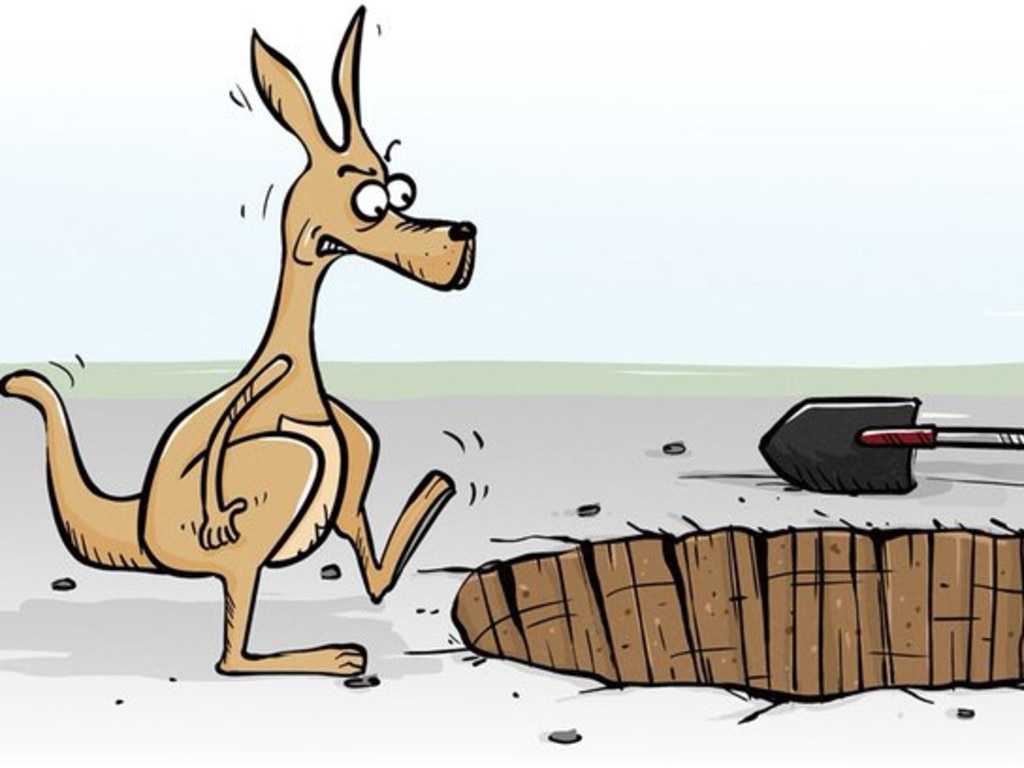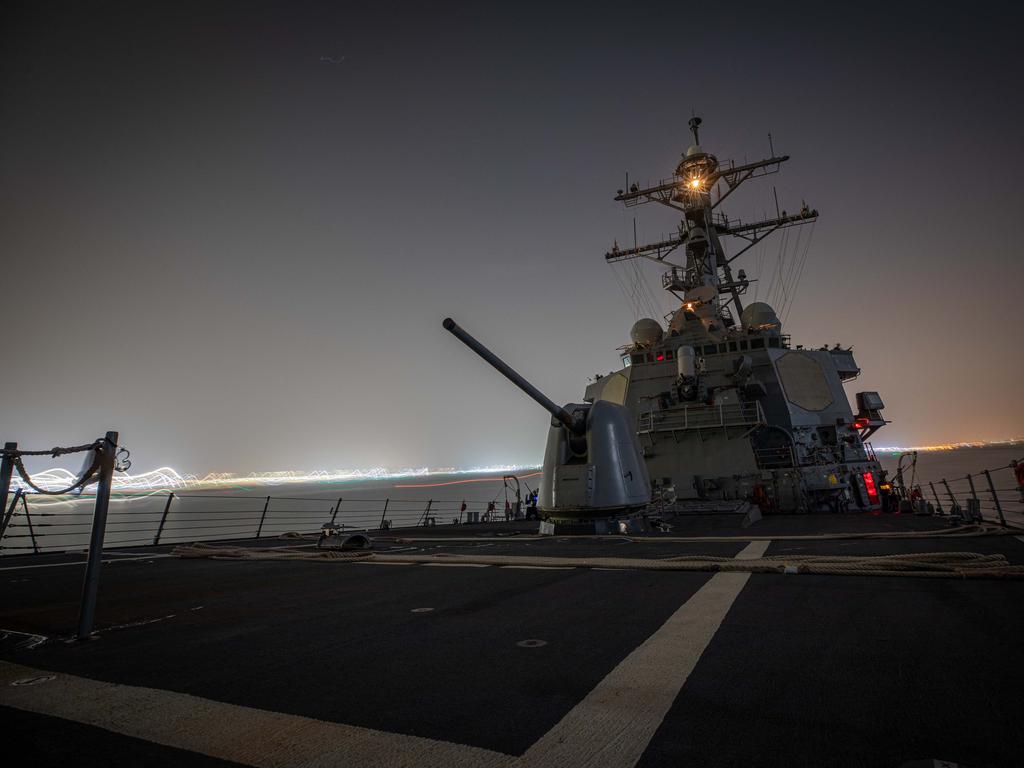Refusing Red Sea mission is a failure of kit and conviction


The Albanese government’s response to an informal US request to send a warship into the Red Sea to protect shipping lanes from Houthi rebel attacks only highlights this growing problem.
The US is acting against its movie stereotype and has been extraordinarily polite in how it has made its request. And so, after the Albanese government signalled it would not provide a warship, the US chose to modify its request to allow Australia to send people instead. This has given Anthony Albanese and Defence Minister Richard Marles a graceful out that doesn’t involve saying a flat no to a formal request.
Why should Australia send navy personnel and an expensive frigate to help protect shipping in a place so far from our own region? We must acknowledge events in the Middle East affect us here at home and that freedom of navigation is a global good; this is not something that can be protected in our region but ignored elsewhere.
Throughout summer, petrol prices will be higher because of the uncertainties relating to the Red Sea and Suez Canal – created by Houthi threats and attacks – just as food and energy prices have spiked since Vladimir Putin’s war in Ukraine.
The wider world will continue to crowd in on Australia, even as we insist it’s all somebody else’s problem and that we should simply focus on our local region.
It may sound sensible to call for Gulf states such as Saudi Arabia, Egypt, United Arab Emirates and Jordan to use their own militaries to stop the Houthis damaging, sinking and capturing international oil tankers and cargo ships travelling through the Red Sea.
But it is fanciful and dangerous to expect this because these Arab states have populations that are energised and mainly supportive of Hamas and the Palestinians in Gaza. They regard Israel and anyone who works with it as the enemy; anyone on Hamas’s side – such as the Houthis – are considered friends. Egyptian naval vessels responding to Houthi attacks would stoke even more civil unrest inside states such as Saudi Arabia and Egypt that would threaten their stability. In addition, Arab states attacking Iranian-backed Houthis would raise the risk of the conflict in the Middle East escalating to a wider war involving Iran.

Imagine, for example, if an Iranian Islamic Revolutionary Guard Corps officer or unit were killed or targeted in Yemen or the Red Sea as part of the taskforce work, or if an Arab nation’s vessel was sunk.
In securing the Red Sea, it is in the interests of global security and stability for the international naval taskforce to be US-led and to have a broad membership that doesn’t include many Gulf states. Doubtless this is the calculation Canada, Norway, the Seychelles and Spain have made, prompting them to send warships to be part of the maritime task-force.
The US entered AUKUS because we were seen as a credible partner that was increasing its military power. It won’t end our alliance if we refuse to send a warship but our lack of actual capability will have woken them up to the limitations and problems within Australia’s defence force.
This will be a source of considerable concern in Washington, perhaps generating some questions over whether our military investment budget is best consumed by pursuing eight still very distant nuclear-powered submarines, or on alternatives that give the Australian Defence Force some relevant naval power much earlier.
On the public justification, we have heard from the Albanese government we won’t send a ship because our priority is the Indo-Pacific. This is fair enough but still unfortunate. Even with its peacetime exercises and patrolling, our navy is already overstretched because of its small fleet and understrength crews.

The Red Sea involves actual warfighting. Any engagement would entail responding to and destroying incoming armed drones and cruise missiles that could damage or sink ships. It also would be about preventing or ending Houthis boarding commercial vessels that are trying to transit the Red Sea.
We should have a navy large enough to provide at least one warship to this international task-force while doing other things in a different region. For years we were capable of doing this kind of operation, but the sad truth is we aren’t any more.
This raises a more disturbing problem. Even if we did send a warship, it would not be equipped with effective and cheap counter-drone defences. Instead it would rely on using limited numbers of very expensive anti-ship missiles (missiles designed to shoot down other missiles) and old-fashioned guns to shoot down cheap armed drones and cruise missiles used by the Houthis.
The Albanese government could order an urgent program to arm our small fleet with effective counter-drone systems. Then, at least, if the government wished to, it would have the option of sending an Australian ship to be part of the Red Sea maritime protection task-force – an option it does not have now unless it’s willing to take considerable risk with a ship and its crew.
If our navy isn’t powerful enough to deal with the Houthis, then it is no shape to participate in a conflict involving China in our own region.
That must change. The Albanese government could spend some money to get a new class of warship into service well before the first planned new warship – the first Hunter-class frigate – enters service in 2033.
Then, not only would we not be embarrassed when our US ally signals it needs our help, we would also have a navy that could make a real contribution to our security here and in our region in the event of conflict.
That’s not true now.
Michael Shoebridge is founder and director of Strategic Analysis Australia.







The Australian navy is small and its ships are ageing. In our region and elsewhere, it has fundamentally failed to keep up with the threats that confront Australia.